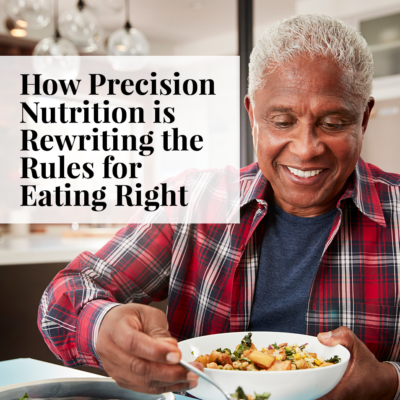Bryan Munoz, PhD, has a message for anyone who’s ever been tempted by the latest diet craze: be skeptical.
“Let’s be honest, we’ve all heard it,” said Munoz, a research assistant in the Tate Lab at the UNC Nutrition Research Institute. “Eat like a caveman! Go gluten-free! Try this juice cleanse – even Beyoncé is doing it!” He pauses. “But here’s the problem: a lot of it is a scam.”
From flat tummy teas peddled by influencers to restrictive diets promising instant results, the world of nutrition advice has become a battleground of misinformation. “Many of these products have been fined by the Federal Trade Commission (FTC) for false claims,” Munoz explained. “And extreme diets like keto? Sure, they work for some people – but for others, they can raise cholesterol or harm liver health.”
Some stories, like that of an Australian influencer who falsely claimed she cured her cancer with food and sold a bestselling cookbook based on the lie, are stark reminders of just how dangerous unproven advice can be.
“These diets don’t work for everyone, and sometimes they actually hurt us,” Munoz said. “What all this ignores is one critical truth: we’re not all the same.”
That concept, that nutrition should be tailored to individual differences, is the driving force behind a revolutionary new program called Nutrition for Precision Health, a National Institutes of Health initiative powered by the All of Us Research Program. Munoz is part of the team helping advance this work at UNC.
“For decades, nutrition research took a one-size-fits-all approach,” he explained. “But two people can eat the same food, and one might get healthier while the other develops diabetes. Why? Because nutrition depends on your genes, your environment, your lifestyle – your biology.”
The Nutrition for Precision Health initiative is collecting data from thousands of participants across the U.S. – their diets, gut microbes, genetics, and even daily habits like sleep and exercise. By analyzing how all these factors interact, researchers hope to understand how different people respond to the same foods.
“Our goal is to build a body of science that can tell you what nutrition works best for you,” Munoz said.
Just as important as the science is the commitment to inclusion. “We’re making sure people from all backgrounds are represented,” he emphasized. “Especially communities that have been historically excluded from health research.”
Precision nutrition isn’t about fads or gimmicks. It’s about building personalized recommendations that improve real health outcomes. Imagine being able to walk into your doctor’s office and receive a nutrition plan tailored to your genetic makeup, your microbiome, and your lifestyle. That’s the future this research is working toward.
“When nutrition is based on real data, not trends, we can finally start replacing misinformation with truth,” said Munoz.
His closing thought? “You’re unique – and your nutrition should be too.”

